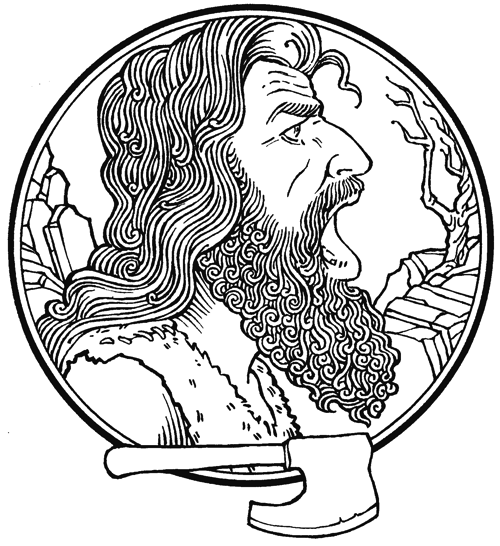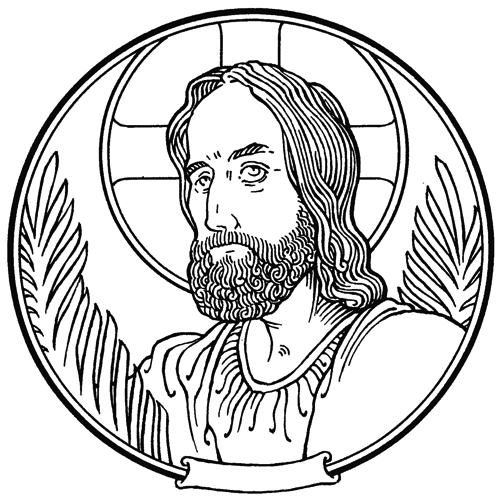 Grace, mercy, and peace to you from God our Father, and from our Lord and Savior, Jesus Christ, amen. The text for the sermon is the Gospel, which was read earlier.
Grace, mercy, and peace to you from God our Father, and from our Lord and Savior, Jesus Christ, amen. The text for the sermon is the Gospel, which was read earlier.
There is recorded for us in today’s Gospel account from St. Matthew one of the most vulgar sounding words to our ears. It’s a word that we don’t’ like to hear, especially when directed at ourselves. That nasty and vulgar word is “repent.”
When John the Baptist makes his appearance, it is not the kind of appearance that you want to see. He goes into the wilderness of Judea with a singular message: “Repent, for the kingdom of heaven is at hand.” John the Baptist is the son of Zechariah the prophet, making him the last of the Old Testament prophets. The prophets’ job was to prophesy of the coming of God’s Messiah. These prophecies had been spoken for hundreds of years so the people would have been familiar with who this coming Messiah is and what it would mean. But when John the Baptist makes this revelation about the coming kingdom of heaven, just what did that mean?
It would mean that God’s promise is about to be fulfilled. It means that the Savior of creation was about to make His grand entrance into the creation He was going to save. It meant that creation needed to prepare itself for the arrival of the Messiah, and what better way to prepare oneself than to repent of your sins.
How is one to repent? What is it that they are supposed to do? What does it mean to repent? We normally think of repenting as being sorry for our sins. This is true enough, but there’s more depth to it than that. To “repent” in the Greek means literally to “change one’s mind.” You can see the obvious: when you repent of sin, you’re saying, “I thought it was a good thing, but now I know it’s not.” That’s a repentant mind-change that happens only by the grace of God. But again, there’s a greater depth to repentance because there’s a greater depth to sin. When John calls the people to repent, he is calling them to repent of all of their misconceptions and wrong ideas about the Savior. If they have the wrong idea of who the Savior is supposed to be, then they’re not going to like the Savior for who He truly is. If they’re looking for the wrong things in a Messiah, then they’re not going to recognize Him when He makes His appearance. Remember, John the Baptist is called by God to prepare the way of the Lord. He therefore prepares the people by teaching them the true nature of their sinfulness, so that they see the need for the Savior; and he prepares them by teaching them who the Savior is, and what He will do.
People from the region of Jerusalem and Judea and the Jordan were coming to John the Baptist to be baptized and confessing their sins. For the people who came to John the Baptist, they were contrite and believed. They desired to repent, to change their minds, but more importantly, they desired to hear the message of the coming Messiah.
This Adventide, it is important for us to heed the words of John the Baptist, as did the people of old. We must repent of our sins, repent of our false perceptions of who the Messiah is, and is not. We must repent of our false perception of ourselves and come to grips with the reality that we are a people in need of a Savior.
This is what John prophesies about to the people. His singular goal is the preparation of God’s people to receive the Messiah when He comes. Despite his best efforts, not all of the people were convinced of the message that he was proclaiming. Believe it or not, we’re not fully convinced of his message either.
Like the Pharisees and Sadducees, we make excuses to our behavior. They make the claim, “We have Abraham as our father.” Abraham was a God-fearing man. He followed the law of God. But just because they descended from Abraham, did that make them any less of a sinner? No it did not. To be honest, the statement that the Pharisees and Sadducees and all of mankind should make is “We have Adam as our father.” We don’t want to make that statement because if we do, then we acknowledge “that we are sinful and unclean.” We acknowledge that we have sinned against God “in thought, word, and deed, by what we have done and by what we have left undone.” No one wants to admit that fact. We would much rather say that we have Abraham as our father because Abraham was “good.” If we say that we have Adam as our father, that’s a black mark because Adam was “bad,” and let’s face it: we would much rather be “good” than “bad.”
What we fail to understand, just as did the Pharisees and Sadducees, is that we are not “good” because of our sinful nature; we are like the tree that does not bear good fruit; it is cut down and thrown into the fire. We have all shared in Adam and Eve’s sampling of the fruit of the tree of the knowledge of good and evil. As a result, our lives are unfruitful: we do not do the works that God requires; in fact, we cannot do them. God’s righteous judgment comes down upon Israel and it comes down also upon us. But instead of leaving us with just judgment, doom and gloom, John the Baptist also promises something beyond our wildest imaginations: the coming of the Savior.
Remember the words of the prophet Isaiah: “The voice of one crying in the wilderness: ‘Prepare the way of the Lord; make his paths straight.’” John the Baptist is the one crying in the wilderness of the coming Messiah. He is making the paths straight by preaching a message of repentance to the people, to prepare them for Christ’s arrival. John the Baptist comes to lead people to repentance, to baptize with water. When Jesus arrives, “He will baptize you with the Holy Spirit and with fire.” He is coming to do something far greater than John the Baptist, the Pharisees, Sadducees or we could ever do: “Behold, the Lamb of God, who takes away the sin of the world!”
While everything about John seems to be crazy, the message he preaches is anything but crazy. It is a message that draws the people from all over, drawing them to repent of their sins and to be baptized. For as much as John the Baptist seems out of place in the coming Nativity of our Lord, the message is very much appropriate: He comes with grace – to forgive your sins, to strengthen your faith, to prepare you for everlasting life. Even now in Word and Sacrament we feast upon Christ as our tree of life. He is the vine and we are the branches. By Word and Sacrament, we bring forth the fruit of repentance and live in trust and obedience. He declares to you even now, “Repent, because I am at hand; and because I am here, you are forgiven for all of your sins.” In the name of Jesus, amen. Now the peace of God that passes all understanding, keep your hearts and minds through faith in Christ Jesus, amen.
 Grace, mercy, and peace to you from God our Father, and from our Lord and Savior, Jesus Christ, amen. The text for the sermon is the Gospel, which was read earlier.
Grace, mercy, and peace to you from God our Father, and from our Lord and Savior, Jesus Christ, amen. The text for the sermon is the Gospel, which was read earlier.